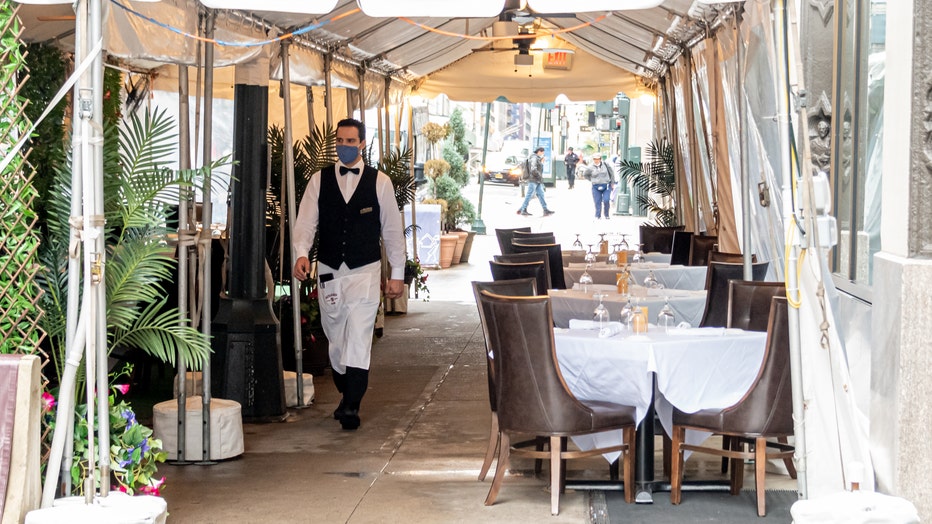Johns Hopkins health expert says enclosed outdoor dining isn’t ironclad for COVID-19 transmission

Outdoor dining risks
Struggling restaurants in the DMV that have been able to take advantage of having outdoor seating are bracing for how the colder days ahead will look like for business.
ALEXANDRIA, Va. (FOX 5 DC) - With restrictions on indoor dining still in place for many parts of the DMV, the planning for winterizing outdoor seating in the time of coronavirus has been in the works for a lot of restaurants.
A lot of those preparations include heat lamps and tents with drop sides that essentially create an enclosed dining room but for outside.
Dr. Amesh Adalja, a senior scholar at the Johns Hopkins Center for Health Security, said that even with covered outdoor dining, the method isn’t ironclad, meaning the risk of transmission will always be there –– but he added it is still much safer than being inside.
READ MORE: Outdoor dining bubbles aren't as safe as you'd think, doctors say

NEW YORK, NEW YORK - OCTOBER 13: A waiter walks at a tented restaurant on a sidewalk in Midtown as the city continues the re-opening efforts following restrictions imposed to slow the spread of coronavirus on October 13, 2020 in New York City. Restau
According to their respective website, some establishments in the District, such as the Four Seasons Hotel and The Watergate Hotel are utilizing igloo domes that have been around even before the pandemic. It seems the pandemic will give those pods some more popularity.
“Anytime you are in an indoor setting there is always going to be an increased risk of transmission,” explain Adalja. “Whether or not those pods and bubbles have adequate ventilation I think is a question to ask and are they allowing air to recirculate?”
Adalja said that surface transmission is likely to occur and it can still be a problem, so even if restaurants have outdoor seating, the protocols for cleaning would have to be the same as they would be for indoor dining.
Download the FOX 5 DC News App for Local Breaking News and Weather
Some restaurant owners like Luis Merchan, co-owner of Los Cuates in Old Town Alexandria said that right now, it’s hard to tell what exactly the colder months will bring for them even if they winterize their outdoor seating area.
“It’s scary with COVID, so most of the people want to stay outside rather than being inside,” said Merchan. “We are working with some tents as you can see and also with heaters to keep the air from coming in so we will see. That is the first challenge in my life so we are trying to do our best.”

